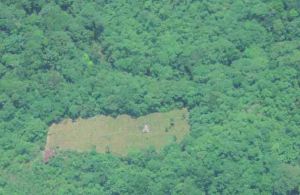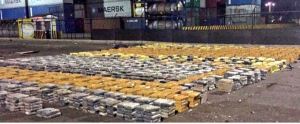nsnbc : Panama’s President Juan Carlos Varela claimed Colombia’s peace process was causing an increase in drug-related violence in his country. The remark caused indignation in Colombia where Foreign Minister Maria Angela Holguin said she had received the Panamanian claim with “surprise and concern.” She dismissing Varela’s claims as “unjust and incorrect,” and made her own remarks about the failed war on drugs and Panama’s role as transit country.
Commenting on reports that Panamanian soldiers had killed four Colombian drug traffickers in the jungle region between the two countries, Panama’s President Juan Carlos Varela said:
“I warned a few months ago that peace in Colombia would have an impact on Panama, because the production of drugs is increasing. .. This is the first time I have seen four Colombians getting killed on Panamanian soil.”
Colombian Foreign Minister Maria Angela Holguin said the Panamanian claim caused “surprise and concern,” while she dismissed Varela’s remarks as “unjust and incorrect.” Panama has for decades been one of the main Central American transit countries for shipments of cocaine and other drugs from Colombia and Peru (among others) to the U.S. – American market.
While Colombia and Peru are among the biggest producers of coca, the United States is by far the world’s biggest consumer market for illicit cocaine. Both consumption of cocaine in the US and the production of the drug in Colombia has been increasing for years. The development has spurred the Colombian government on numerous occasions to promote an alternative to the apparently counter-productive US-led “War on Drugs.”
Maria Angela Holguin said: “The drug problem is global and because of this the war against this crime requires global answers. Colombia has been without a doubt the countries that has sacrificed most deaths and we continue fighting without letting our guard down.” She also noted that the increase in cocaine trafficking is a “transnational criminal dynamic that affects all countries in the region and has no direct relationship with Colombia’s peace process.” Also referring to remarks about the peace process, the FARC, and Colombia’s illicit drug substitution program, Holguin said:
“Colombia thanks the countries that have helped us and see a great opportunity to leave the violence behind that so much has affected our country and region. Our neighbors have always expressed concern about the negative security effects because of our armed conflict with the FARC . The least we can expect, now that it is over, is their enthusiastic support.”
Panama and several other countries like Ecuador have on several occasion expressed concern about the possibility that the FARC’s demobilization could lead to a power vacuum. This effectively has occurred after peace with the FARC was signed in November last year. Colombia’s military has been unable to assume control over many of the traditionally FARC-controlled areas which spurred guerrillas, neo-paramilitaries and drug traffickers to rush to fill the power vacuum.
In the case of Panama, the demobilization of the FARC’s 57th front allowed paramilitary group to consolidate its control over the Panamanian border where authorities already have dismantled drug distribution centers. While Panama’s homicide rate has dropped nearly 50% since 2014, the country seized a record volume of cocaine, 72.4 metric tons, in 2016.
A/N – nsnbc 13.05.2017
Source Article from https://nsnbc.me/2017/05/13/colombia-panama-clash-over-drug-trafficking/
 RSS Feed
RSS Feed















 May 14th, 2017
May 14th, 2017  Awake Goy
Awake Goy 












 Posted in
Posted in  Tags:
Tags: 













